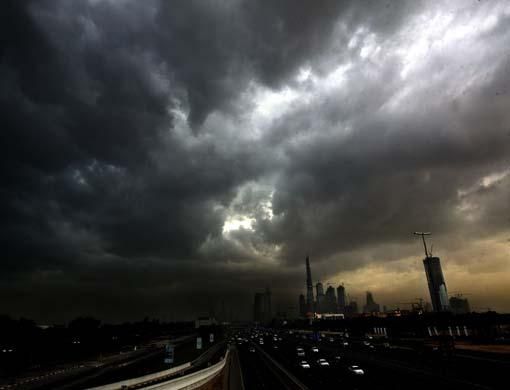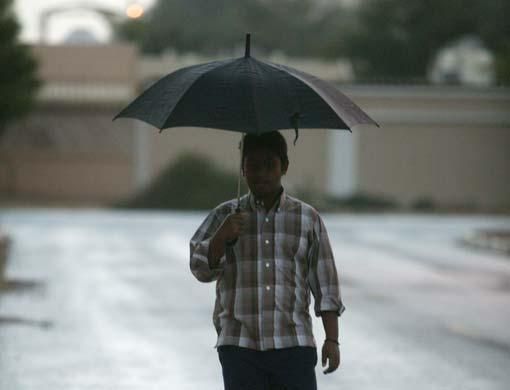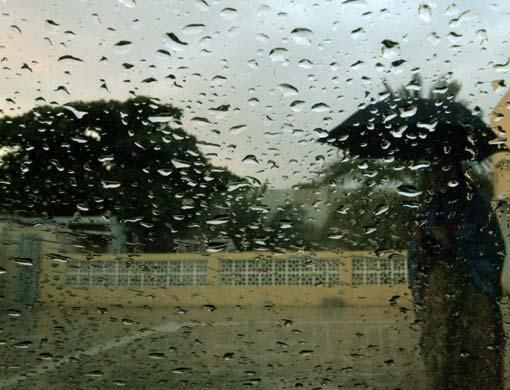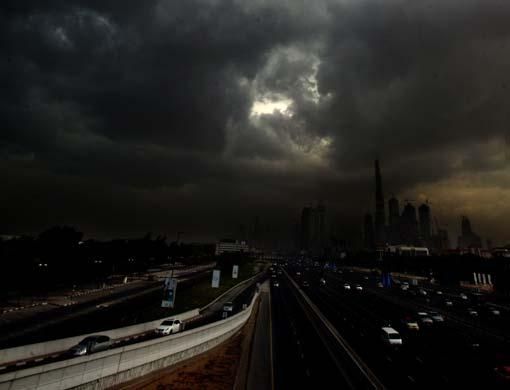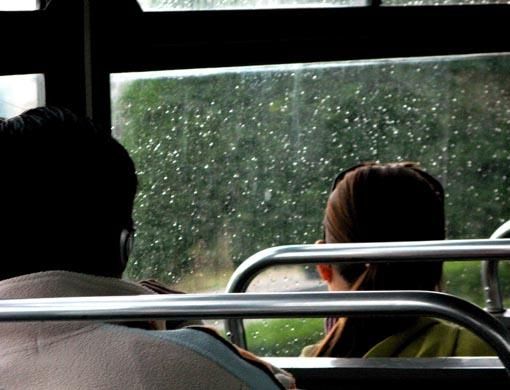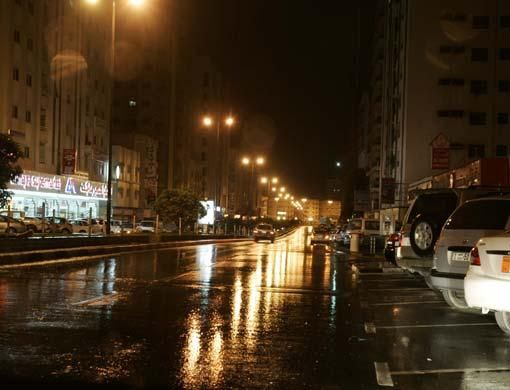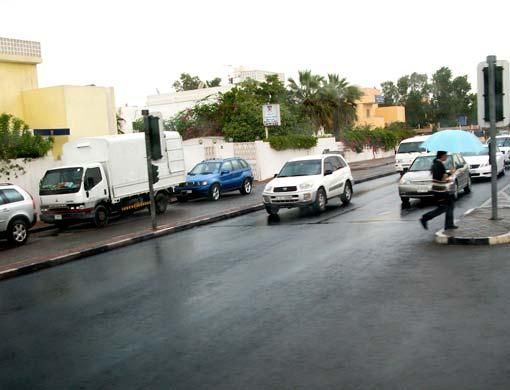Al Ain/Abu Dhabi/Ras Al Khaimah/Fujairah: Temperatures plunged to almost zero in some parts of Abu Dhabi's Western Region on Tuesday as forecasters warned of a yet another bad weather system with intermittent rain and a dip in temperatures.
The new system, coming from the Mediterranean region, is expected to hit the UAE and neighbouring Arabian Gulf countries on Friday evening with clouds and strong and cold winds.
"We are expecting the system will hit the UAE on Friday evening or Saturday morning," said duty forecasters at the Meteorological Office at Dubai International Airport, and the National Centre for Meteorology and Seismology (NCMS) in Abu Dhabi.
Frost forms
People in the Western Region of Abu Dhabi emirate faced freezing cold yesterday. In Ghuifat and Rikan areas, the temperature went down to 2.5 and 1.3 degrees Celsius respectively, according the NCMS.
Frost formed in mountainous areas of Ras Al Khaimah, Mohammad Abdullah, a spokesman of the NCMS, told Gulf News yesterday.
The current weather conditions, expected to end by Thursday, have dropped temperatures to unusually low levels.
"This is something rare," said Mohammad Al Abri, an official at the NCMS, who, however, did not declare it the coldest winter spell in the country.
"Shamal winds have been weakening but at a very slow pace," said a duty forecaster at Dubai Airport Met Department. The present spell of unstable weather is expected to continue until Thursday evening.
He said the sea was very rough yesterday morning with waves as high as three metres. "We have also issued a marine warning, asking fishermen and small boats to stay away from the sea," he said.
Fishermen have been facing a tough time, with the majority of them not taking the risk of going out in the rough sea. The temporary shortage has reportedly increased the fish prices.
Exceptional
Light rain fell in Dubai, Sharjah, Ras Al Khaimah, and Umm Al Qawain. Met offices reported exceptionally low temperatures at these places, saying more light rain is expected.
Today will be partly cloudy in most parts of the country, especially Dubai and northern emirates, the forecaster said. Light rain is also expected in Dubai, Sharjah and Ras Al Khaimah. Temperatures are likely to rise gradually in the next two days.
Residents of Ras Al Khaimah said heavy rain fell on Shaam, Al Jeer, Khor Khowair and Ghaleelah.
The conditions in Fujairah and Al Ain were windy, partly cloudy and cold with no rain.
Wind and blowing sand continued to create problem for motorists on highways, but visibility has improved. Traffic police did not report any major road accidents, while no disruption was reported at major airports.
Driving: Keep safe in the rain
Brigadier Mohammad Saif Al Zafein, Director of Dubai Police Traffic Department, cautioned drivers to drive carefully in the unpredictable weather. He also said that driving in the rain may lead to the skidding of the vehicle and the loss of control by the driver.
A vehicle was going 60kph needs almost 35 metres to stop and avoid crashing into the vehicle ahead of it. When the the speed goes up to 120 kph, a car needs four times the distance (140 metres) to stop. This applies to dry roads, and not wet roads, where braking distances are even greater.
Al Zafein also said that speeding in sand storms and winds will limit a driver's vision. The head of the traffic department also said that during changing weather, the possibility of accidents is higher than that in ordinary circumstances.
"There are also several precautions that must be taken such as cleaning windshields, keeping in the same lane and using head lights," he added. Al Zafein also asked companies to be lenient with their employees during rainy days, to avoid accidents.
- Staff Report
Health: Avoid illness
Dr Suresh Menon, internal medicine specialist in charge of the emergency department at Jebel Ali Hospital, says cold and flu prevention begins with hygiene.
"Wash your hands all the time or use hand sanitisers. The cold virus can be transmitted through droplets on your hand, from door handles and handshaking," he said.
Other ways to avoid colds and flu include avoiding close contact with others and sharing utensils, and wearing a face mask.
To prevent flu, Dr Menon suggests people get vaccinated before the onset of the season.
Treatments include bed rest, plenty of fluids, a carbohydrate-rich diet and medicines to treat symptoms. Antibiotics, which treat bacterial infections, are not needed, as colds and flu are viral.
- N.M.
Dubai/Abu Dhabi: UAE doctors are reporting a spike in cold and flu cases during the cold spell, with labourers, children and the elderly especially affected.
The cold and flu season officially began a few weeks ago.
Dr Wedad Al Maidoor, director of the Dubai primary healthcare department at the Ministry of Health, said they started receiving cases of cold, flu and bronchial asthma in November, but only saw a spike with the cold spell.
"We are expecting to have flu and bronchial asthma because they get worse with the cold temperatures," she said. "We also expect to see more labourers because they live in close quarters."
Dr Suresh Menon, internal medicine specialist at Jebel Ali Hospital, said his department was hard-pressed to deal with the spike.
"We get between 10 and 15 cases of flu and 50 to 60 cases of colds daily," he said, adding many doctors and nurses have also fallen sick.
In Abu Dhabi, pharmacists have been following the spike closely. Hoda Artan, a pharmacist at New Medical Centre in Abu Dhabi, said 80 per cent of walk-in patients had a cold or flu in the last month.
- Nina Muslim and Dina El Shammaa Staff Reporters


